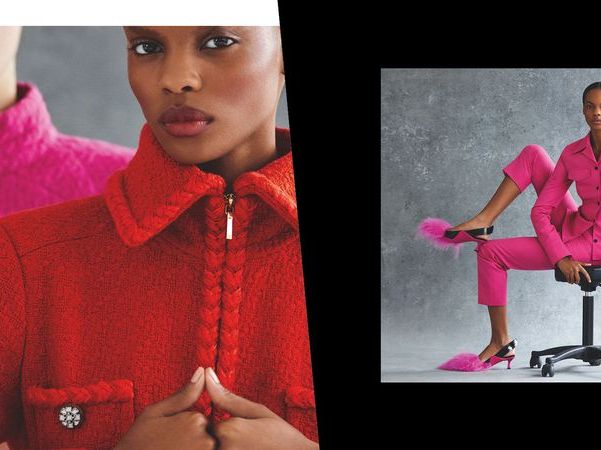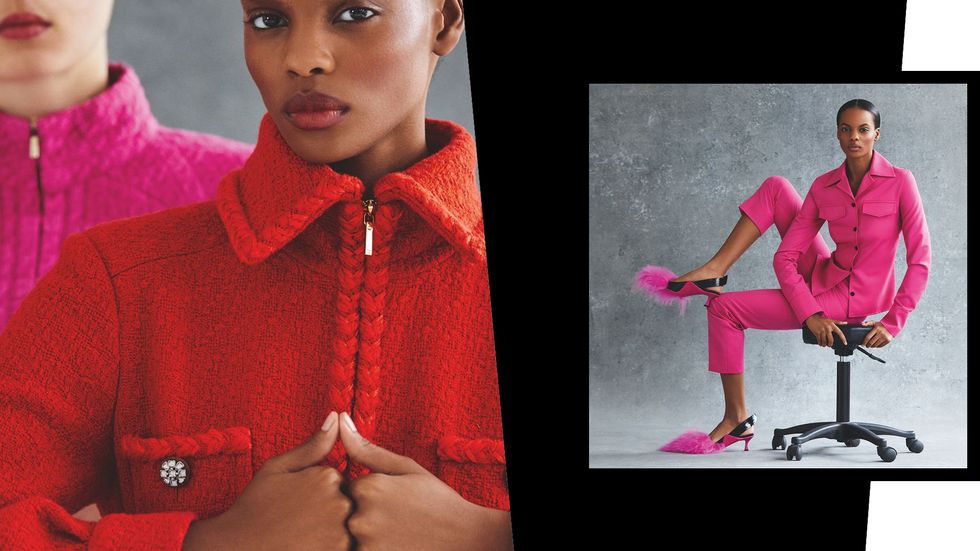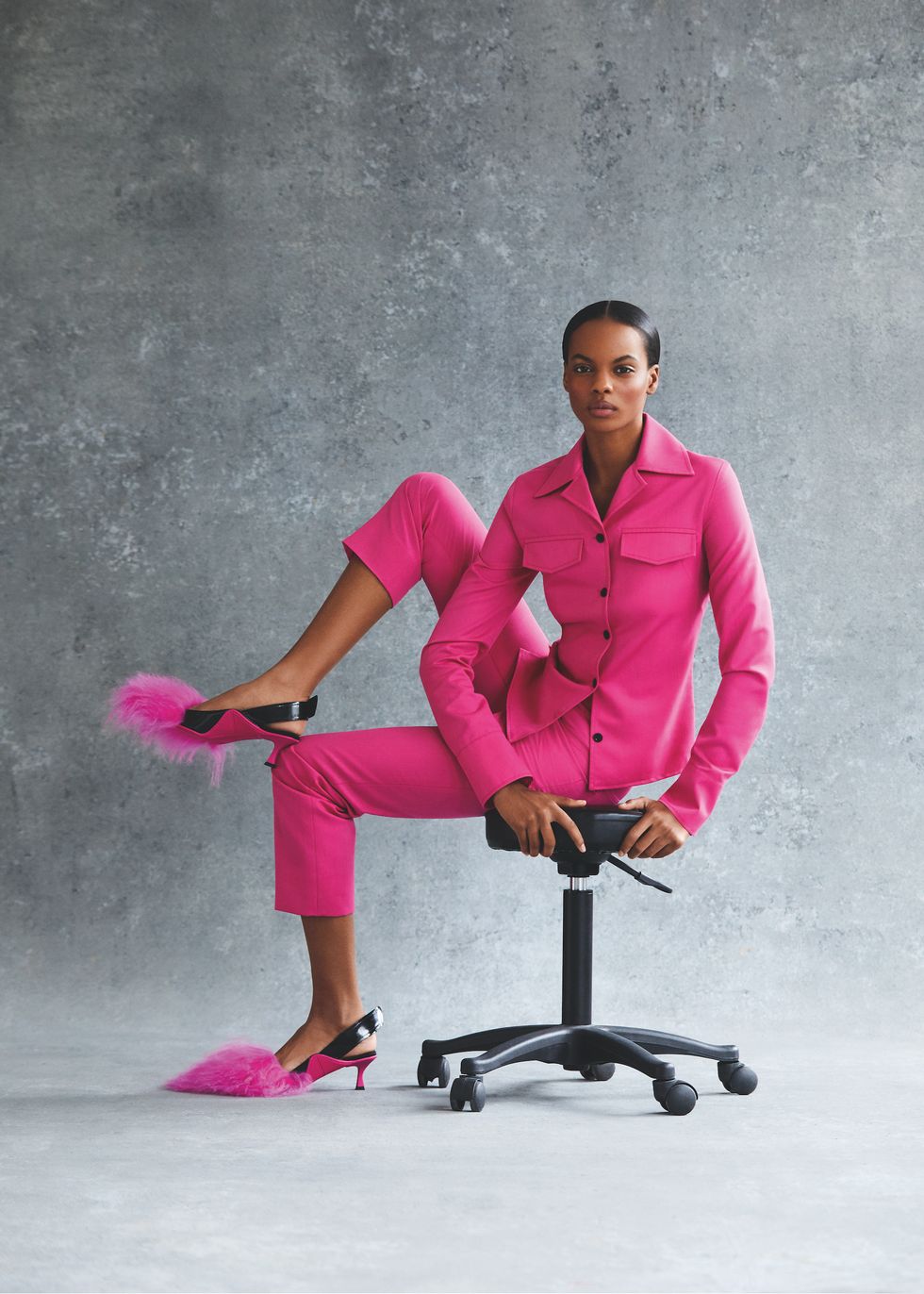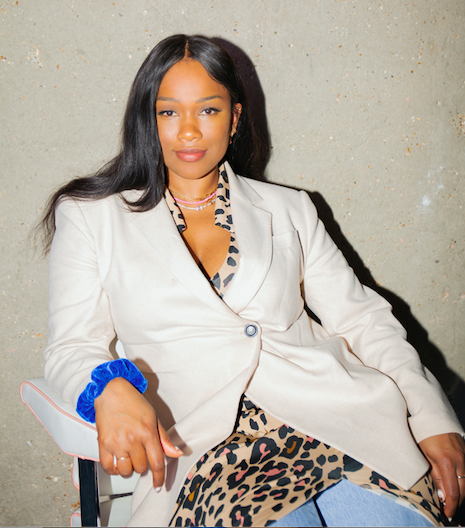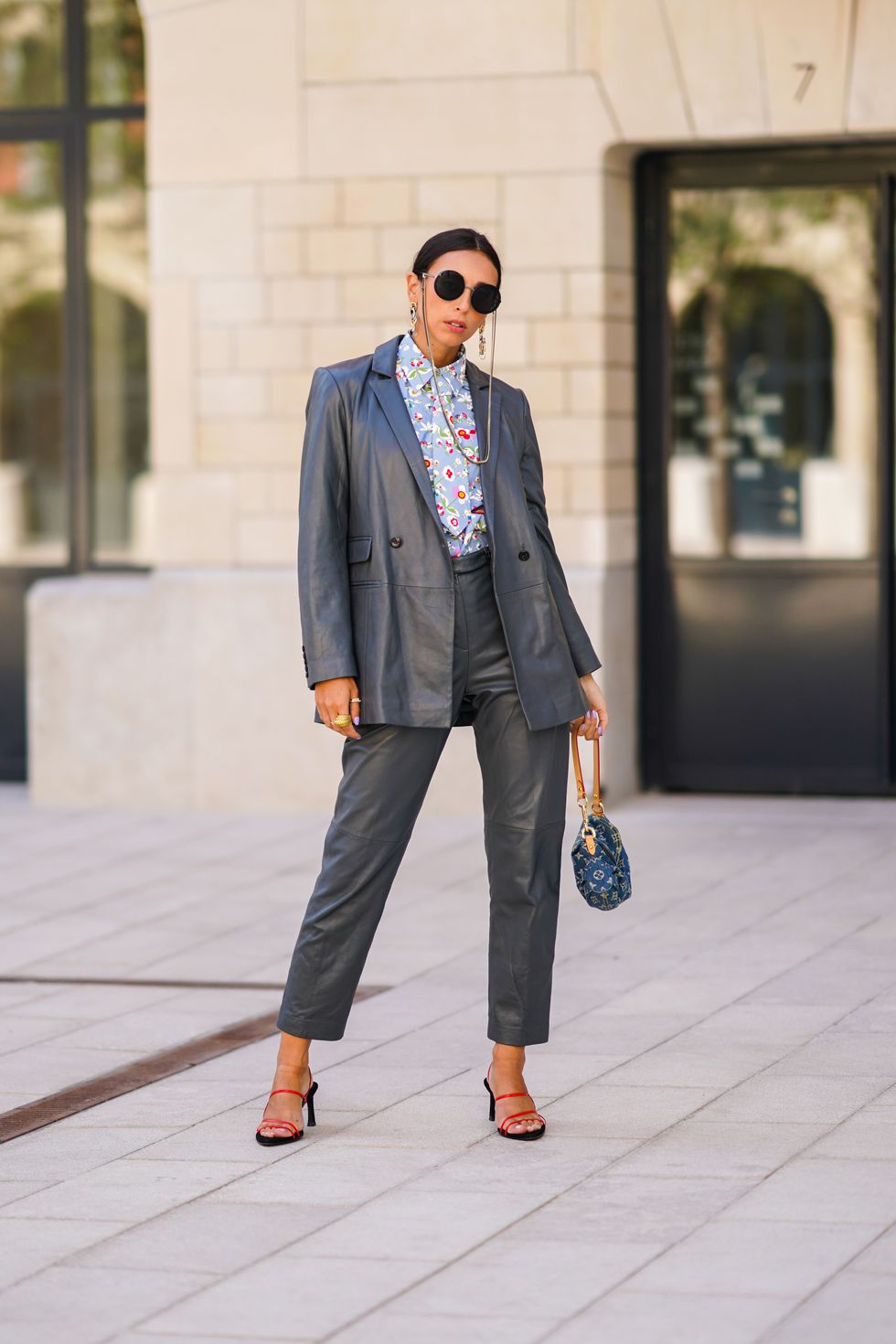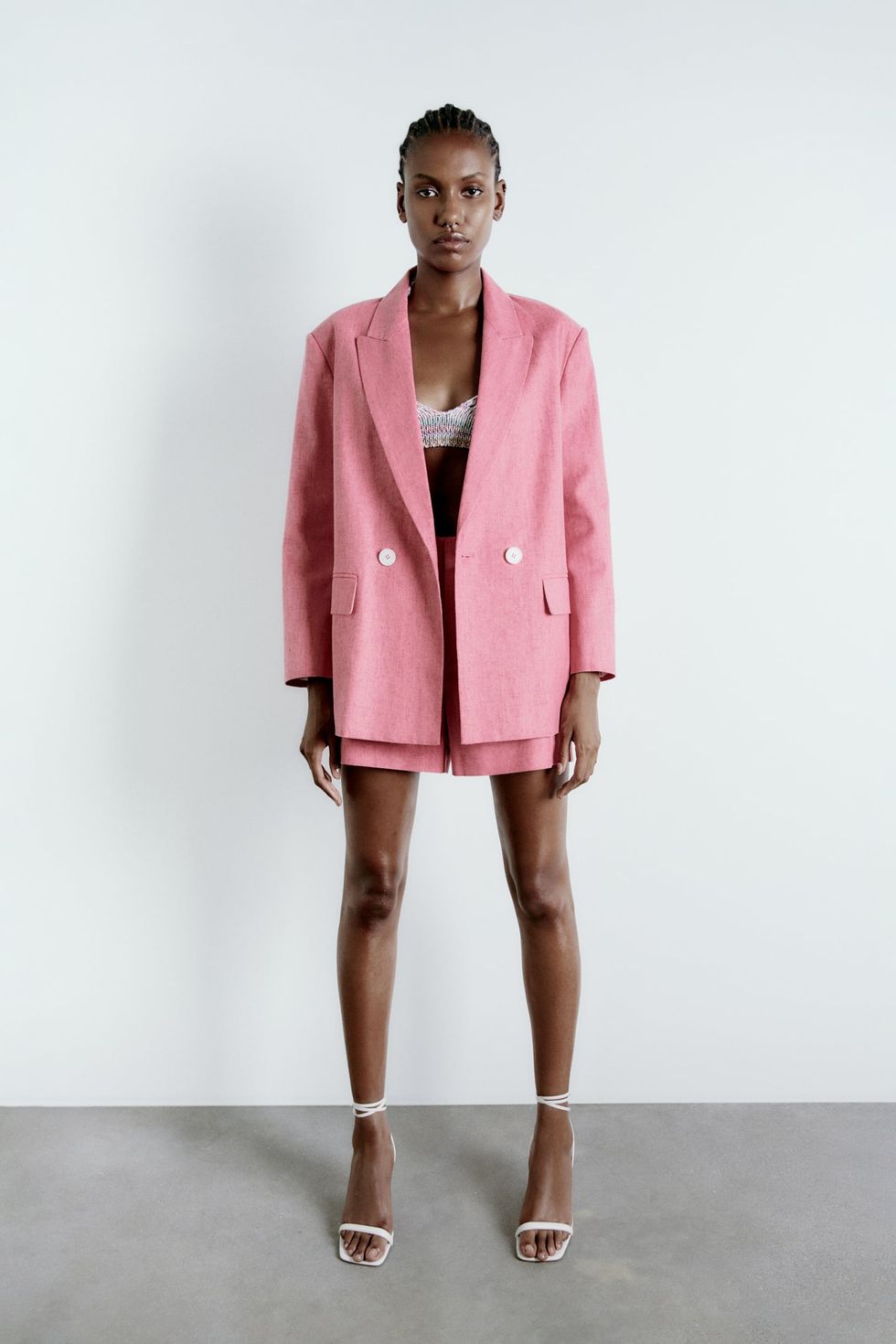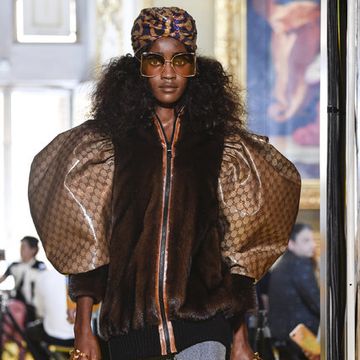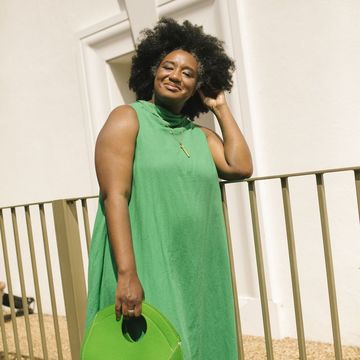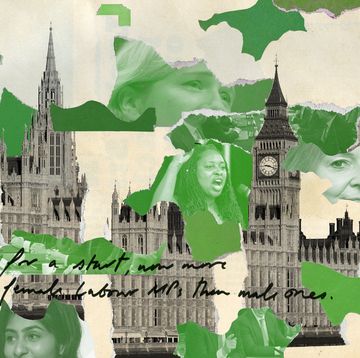At the height of the pandemic, one of Sharmadean Reid’s staff told her that she was struggling to cope. The woman, one of the company’s most junior employees, was having personal problems and wanted to quit. Reid, an entrepreneur who founded the beauty empire WAH Nails and now runs The Stack World, a membership community for working women, offered a compromise: ‘I said: “Don’t resign, just take a sabbatical and your job is here when you come back.”’ The young woman jumped at the chance.
This event sparked a broader debate at The Stack World, which has been asking members: ‘Is it time for a “Hot Girl Sabbatical?” A summer of rest and regeneration, to come back to work refreshed?’ Reid, who stresses that it is a luxury and a sign of privilege to be able to take a sabbatical, adds that this idea also stemmed from the Great Resignation: workers deciding that they had had enough post-pandemic. ‘We’re saying that maybe pausing is better than quitting for many people,’ she says.
Reid has a front-row seat to how company culture is changing: her attitude signals a drastic shift in how many women are now approaching work, from the way they define success to what they want out of a job. As ever, Beyoncé captured the moment with Break My Soul, an unofficial soundtrack to the Great Resignation, with its call to stop overworking and sleep more. It’s a stark change from her Run The World era, in which she rapped in praise of women who had children then got straight ‘back to business’. Pre-pandemic, women who chose to prioritise their work would have been encouraged to avoid taking time out. There was an urgency around careers, working hours and ambition that sprung from years of conversations about productivity and the need to be present and perform if you wanted to get ahead.
Back in 2013, Sheryl Sandberg, the now-outgoing chief operating officer of Meta, told women – via her bestselling book – to ‘lean in’ to their careers. Sandberg’s era morphed into the age of the ‘girlboss’, a term popularised by the entrepreneur and Nasty Gal founder Sophia Amoruso, who described it to mean a woman ‘whose success is defined in opposition to the masculine business world in which she swims upstream’. This was pop-feminism for younger women, a more appealing option than Lean In. Rather than climb up the corporate ladder, ambitious female entrepreneurs were encouraged to create their own empires, often starting with a side hustle. The idea was that, through their own success, they could bring other women up with them, but the reality often fell short of that dream – particularly in terms of inclusivity. Only a select few ever seemed to win, and they came from the same mould: photogenic, social-media savvy, stylish and – usually – white.
A common thread among many of the girlboss-era companies was a ‘cool girl’ aesthetic and a public image conveying diversity, which was eventually exposed as a façade. This was perhaps best exemplified by The Wing, the scandal-hit women’s networking club that briefly had a London outpost. Following a racist incident in the car park of its West Hollywood branch, the New York Times Magazine published an article that claimed the company was hostile to female staff, especially women of colour (claims The Wing denied). Other controversies surfaced, questioning whether The Wing was actually run according to its stated ethos of empowering women. Its co-founder Audrey Gelman left last year, and other figureheads of the girlboss era have also distanced themselves from their companies, from the Glossier chief executive Emily Weiss – described as ‘a face on the Mount Rushmore of start-up culture’ – who announced she was stepping down from the skincare and beauty brand this May, to the co-founder of the women’s website Refinery29, Christene Barberich, who departed last year.
Even Amoruso, whose 2014 book was actually called #Girlboss, tweeted in June: ‘Please stop using the word Girlboss, thank you’, prompting a chorus of ‘You did this to us’-type replies. #Girlboss has been used more than 26.5m times on Instagram, but has also become so parodied on social media as to seem almost embarrassing. The American journalist and critic Daisy Alioto received more than 22,000 retweets for her own contribution to the discourse: ‘the girlboss is dead, long live the girl moss (lying on the floor of the forest and being absorbed back into nature)’.
That girlboss culture has aged so badly is a sign that the world has moved on, aided by the cultural shift in the workplace due to the pandemic. The move away from the trope also represents a generational handover: most of those leaders were older millennials, while much of Generation Z wants to challenge corporate structures, rather than feel stuck in them. So what is emerging in its place? ‘What’s being ushered in next is far more community-driven, far more collaborative and far more regenerative,’ says Reid. ‘For someone like me, who exemplified that girlboss image – how it galvanised a generation of young women who were desperate to become makers and not just consumers – these are the ideals of the new era.’
Frankie Cotton, 32, is the founder of the London-based marketing company Let’s Be Frank, and also believes that this replacement can emphasise traditionally female leadership styles instead of the idea of replicating male bosses’ behaviour, which could include promoting in their own image and a more combative approach to managing. ‘The thing that frustrates me about the girlboss narrative is that it wasn’t about female traits that could positively influence a business – this is a generalisation and broad brush, but things like empathy and collaboration. The next level of progress we should be aiming for is focusing more on drawing out behaviours traditionally seen as “female”.’
According to a 2012 study published in the Harvard Business Review (and written by two men), there is some truth in the stereotypes about female leaders: they tend to excel at building relationships, developing staff and showing integrity. Interestingly, they were also rated by their colleagues as better overall leaders than their male counterparts. Well-run businesses are therefore trying harder to keep female staff and to promote them. At Marks & Spencer, the company’s first female chief executive, Katie Bickerstaffe, works a four-day week and does a job-share with co-CEO Stuart Machin (who earns less than Bickerstaffe pro rata). More broadly, the growing campaign for a four-day week is indicative of many companies’ desire to help staff balance their home and working lives post-pandemic. About 70 organisations employing more than 3,000 staff are currently undertaking a six-month pilot scheme in which workers have a three-day weekend but don’t lose out on their wages.
Collaboration and the sense of a collective is central to The Stack World, which launched in March 2021. The platform has held events and panels on subjects from fundraising to financial abuse of women, has an app and does regular calls with its network to ensure staff know what’s on its members’ minds. ‘The idea is: how can we create a community of hundreds of thousands of mission-driven women and give them the tools to form their own communities so that they are self-empowered?’ says Reid. In January, The Stack World launched a feature that allowed anyone to monetise their content ‘OnlyFans-style’, and charge a subscription so they can offer services such as confidence and leadership coaching.
Foundation FM, a London-based radio station, was started by Becky Richardson, Ami Bennett and Frankie Wells to champion female and LGBTQIA+ talent, as well as provide role models for girls wishing to pursue careers in music; all three worked in the industry and were tired of feeling that men had all the power. The station has a policy of ‘full transparency’, meaning any employee can ask questions about how the business is run and receive a truthful answer. ‘When we work with talent [presenters and musicians], we are clear about what we want and what they want,’ Wells says. ‘We put in as much as they do; we know that we’re a coalition of so many voices.’
The studios are also safe spaces. ‘It’s about respecting people’s boundaries, and there’s no tolerance of bad behaviour,’ Wells adds. ‘But this is also a place to learn and grow – people are allowed to make mistakes; it’s then having accountability and understanding the intent behind [that behaviour].’
They’re part of a growing wave of women-led companies reimagining work culture. Marguerite is a London-based members club for women and non-binary people who work in the visual arts, set up so that they can help each other succeed. And at Special Projects Media, a New York- and Los Angeles-based talent-booking company, founders Nicole Vecchiarelli and Andrea Oliveri have fostered a sisterly culture as well as promoting a host of female rising stars.
This new approach from women-led organisations is part of a broader understanding of how workplaces need to evolve. One shift that has been accelerated by the pandemic is greater flexibility about location, with a growing band of businesses now letting people work from abroad. ‘I work with a lot of start-ups and I see them rejecting offices – it saves them a lot of money,’ says Cotton. ‘The question is if they are giving their staff money to do up their home office, and providing a place when people need to be around colleagues for stimulation. But lots of staff like it. One of my clients is working in Ibiza at the moment, and one of my own team is in the Isle of Wight. When you work abroad for a few weeks, you come back with a fresh perspective.’
Much bigger businesses are adopting the same strategy. In April, Airbnb announced that staff could work from anywhere in the world without taking a pay cut. Its chief executive, Brian Chesky, told employees that they ‘have the flexibility to live and work in 170 countries for up to 90 days a year in each location’, and said that this would enable the company to hire (and retain) the best employees. ‘If we limited our talent pool to a commuting radius around our offices, we would be at a significant disadvantage,’ he added.
A second change is that businesses are becoming less hierarchical. Reid’s first company principle is that ‘the smartest idea wins’ so anyone – however junior – can submit their input on any issue. ‘Young people often have special skills in staying very close to the ground in a way that older people aren’t, and they’re often not given enough credit for that,’ she says. In creative industries, younger staff may be more closely aligned with the customer and therefore more capable of picking up on trends, and they may also recognise how societal attitudes are shifting in ways that affect how businesses should operate.
Cotton’s agency has an employee share scheme, which means staff have a stake in the company that grows the longer they are at the business. ‘When you want to create a collaborative team, people have to feel invested,’ she says. ‘You are creating a way for everyone’s interests to be aligned: it is much better than the traditional employer-employee relationship.’ Cotton, whose podcast Raise The Bar explores a feminist approach to business, next wants to set up a fund to allow those with small sums to invest and to boost women-led businesses, which currently only receive 1% of venture capital funding in the UK.
Katie Thomas, 28, who jointly owns the Bournemouth-based interior design company KTM Design with the England footballer Tyrone Mings, says that there is no sense of hierarchy in their office. ‘We all dress informally, work in the same space and go for lunch with each other,’ she says, adding that the aim is to create an office environment ‘where people don’t compete with each other and don’t feel as though they have to fight for their place’. She adds that this has improved productivity, ‘because everyone just gets on without always feeling that they’re being watched by a more “senior” person, and they use their initiative more. It can really help younger or less confident members of staff thrive.’
The new women-centred work collectives are also more proactive at addressing post-pandemic burnout. Thomas believes that a simple way to help prevent it is to allow employees to be open when they’re struggling. ‘I want staff to know they can have a cry and a hug, and that I am here for them as a friend as well as a boss – they will never be judged,’ she says. Other strategies for combating burnout include allowing staff to work a truncated day or week, health benefits such as free meditation apps and stress-management sessions and, most importantly, leading by example: staff feel able to prioritise their mental health if they can see bosses doing the same.
Abigail Bergstrom, 33, who founded the publishing consultancy Bergstrom Studio in 2021 and has suffered from burnout herself, believes that workplace power structures make it more likely that employees from marginalised groups and women suffer because they have to fight harder to progress, and may fear everything will be snatched away. She became so busy at work after she set up her own literary agency that she was always multitasking and couldn’t even squeeze in toilet breaks. Eventually, she was left so fatigued that she couldn’t walk her dog and struggled to get out of bed. She took six months off. ‘I loved my job so I gave it everything, but I didn’t stop to question what it was giving me back,’ she says.
‘Sadly, that’s limited. We’ve been made to believe that a work-life blend is a good thing, but it’s a trick, a way for corporations to get you to work more and call it a lifestyle. Now there are much clearer boundaries in place for me when it comes to what’s work and what’s my spare time.’ This extends to how she treats her staff: she especially rejects the idea – prevalent in publishing circles – that employees should be so grateful to have such a desirable job that they ought to make huge sacrifices: ‘That’s incredibly problematic, and of course leads to severe issues when it comes to representation and diversity,’ she says.
This is, perhaps, the biggest cultural shift: even the most driven women are recognising that success is about more than just ascending to the top of the career ladder or being in charge. ‘Girlboss status was about aligning oneself with one’s work. It was about your identity being synonymous with how you thought of and conducted yourself professionally,’ says Bergstrom. ‘This was a mistake. There is so much joy, validation and sense to be found outside of one’s career. To enrich yourself in other ways will only make you a happier and healthier person, which will echo through your work.’
Reid does not believe we will ever return to the old way of doing things. ‘The workplace has been permanently affected by the pandemic in a way other things haven’t,’ she says. ‘People are still snogging strangers, but they’re not going back to the office in the same way as before. Maybe the workplace needed to go through this process: why are we still doing this Victorian, factory-style labour? The planet can’t sustain this rate of acceleration any more – maybe it is time for us all to slow down.’
This article appears in ELLE's September 2022 issue, on sale on July 28.
